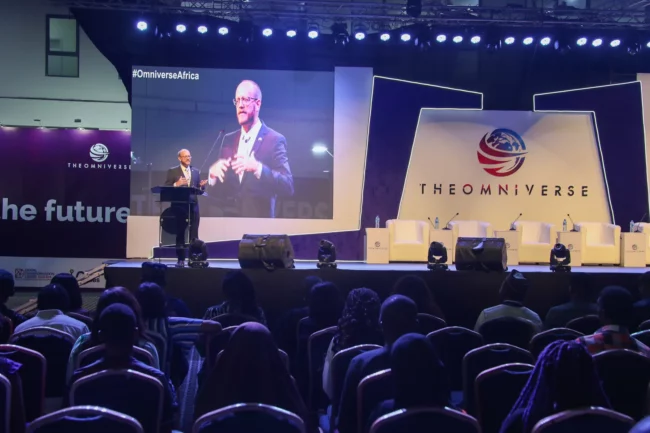US Consul General, Will Stevens says his country is proud to be one of the largest foreign investors in Nigeria, with FDI totaling 5.6 billion dollars in 2022.
Stevens said this during the Omniverse Summit at Landmark Event Centre on Thursday, in Lagos.
The consul general spoke on the theme: “The Role of Technology in Fostering International Collaboration in an Interconnected World”.
He said that Nigeria was the United States’ second-largest trading partner in Africa with two-way trade exceeding 10.6 billion dollars in 2022.
“There are over 80 U.S. companies operating in Nigeria, in manufacturing, fast-moving consumer goods, pharmaceuticals, and technology,” he said.
Stevens reiterated his country’s commitment to supporting Nigeria and Africa on the journey to prosperity.
The consul general said that a strong and prosperous Africa was good for the world.
He called for collaboration, sharing knowledge, and pooling resources to overcome obstacles and achieve the seemingly impossible.
“Let us leverage this opportunity to forge lasting partnerships, break down barriers, and use technology not just to connect, but to create a future where innovation flourishes for the betterment of our interconnected world,” Stevens said.
He said that the way can be paved for fruitful international partnerships by embracing inclusivity, bringing capital to markets that need infrastructure investment, and developing robust cybersecurity measures.
The consul general said that no nation was having a bigger impact on the evolving digital transformation than Nigeria.
He said as Africa’s largest economy, democracy, and number one destination for venture capital, Nigeria was driving innovation and creative solutions to the challenges that vex Nigerians, Africans, and people across the world.
“These innovative creators are reinforcing my deeply held belief that African solutions and African voices are critical and central to resolving the problems of the 21st century and beyond.
“In the past decade, global internet traffic has grown by 700 per cent, and mobile phone users have surpassed 6.6 billion.
“This increased connectivity creates boundless potential for cross-border collaboration, creating a global village where ideas can spark across oceans, and innovations can blossom through collective efforts.
“Imagine a world where researchers from across continents collaborate on ground-breaking medical discoveries, where engineers work together to tackle climate change, and where entrepreneurs share ideas and resources to build a more sustainable future.”
Stevens said the world was using the latest technological innovations to address some of the world’s most pressing challenges in the areas of climate change, education, healthcare, agriculture, and other vital areas of development and economic growth.
He, however, said building these bridges required more than just technological prowess.
Stevens said challenges like cultural and linguistic barriers, unequal access to resources, and cybersecurity concerns must be overcome, adding that they were not insurmountable.
“Together, I see that some of these challenges are already being addressed,” he said.
He explained that U.S. venture capital firms had invested heavily in African tech start-ups with over 60 and 40 per cent of venture capital funding in Nigeria and Africa respectively coming from the US.
According to him, in 2021, African start-ups raised 4.8 billion dollars, translating to an average of over 1 million dollars every two hours.
